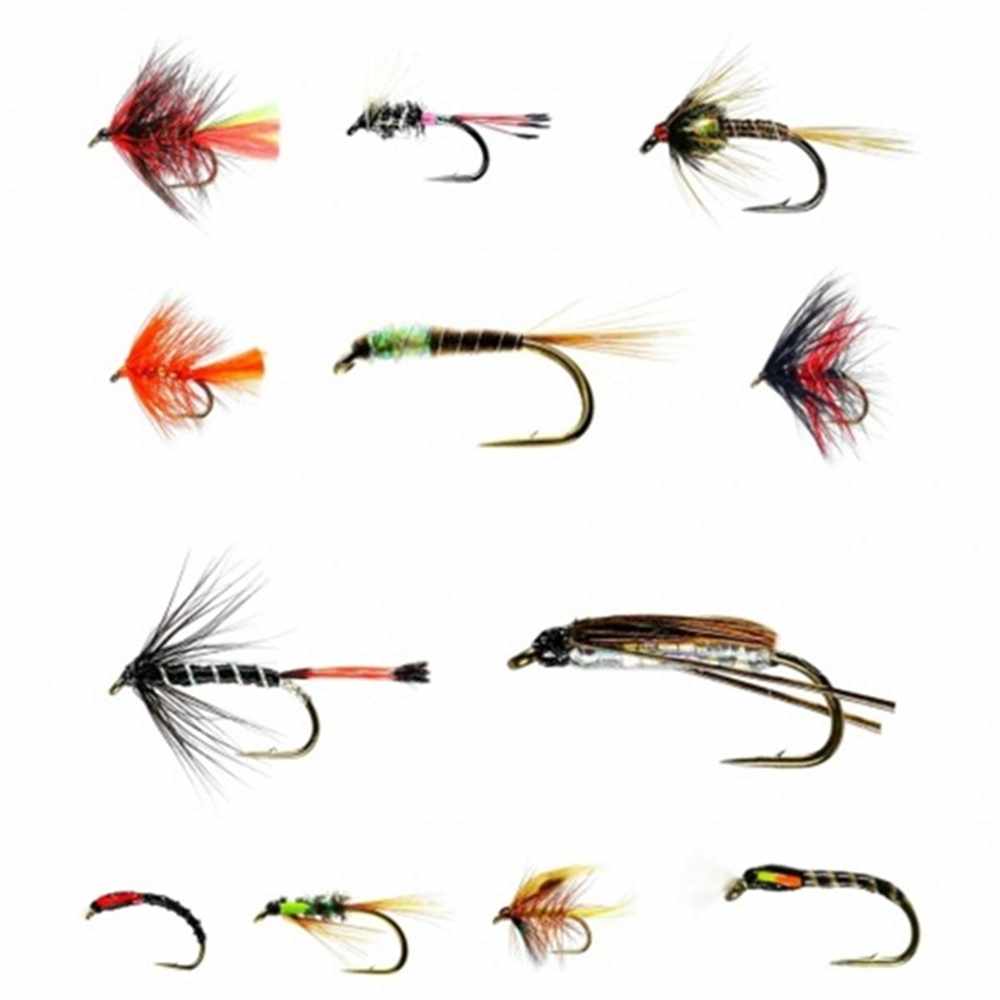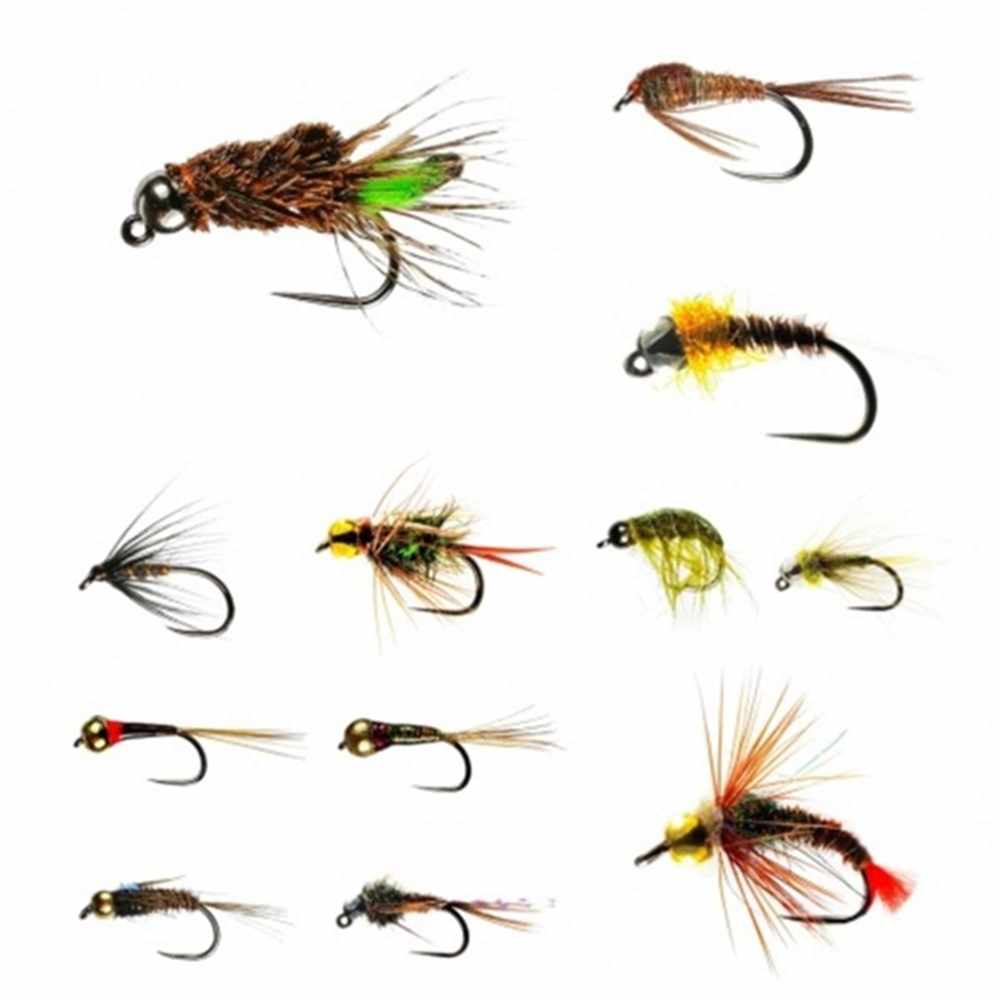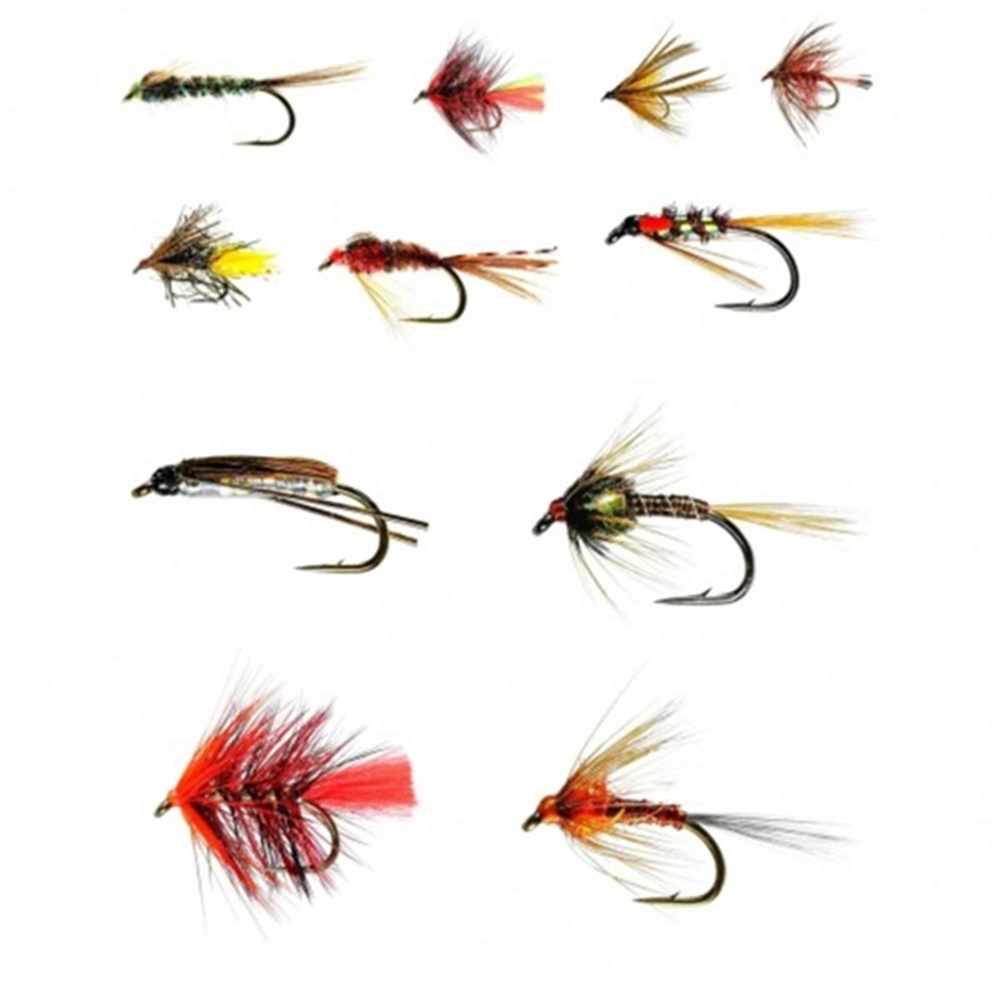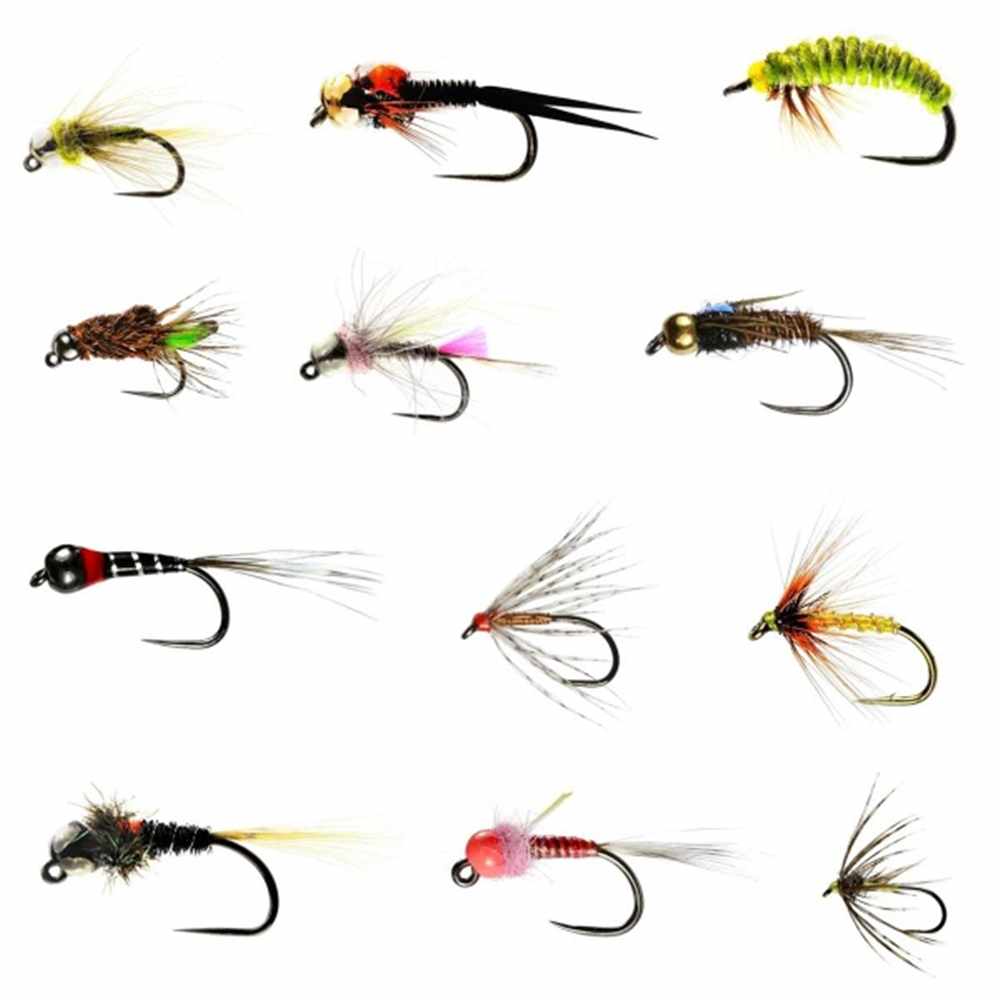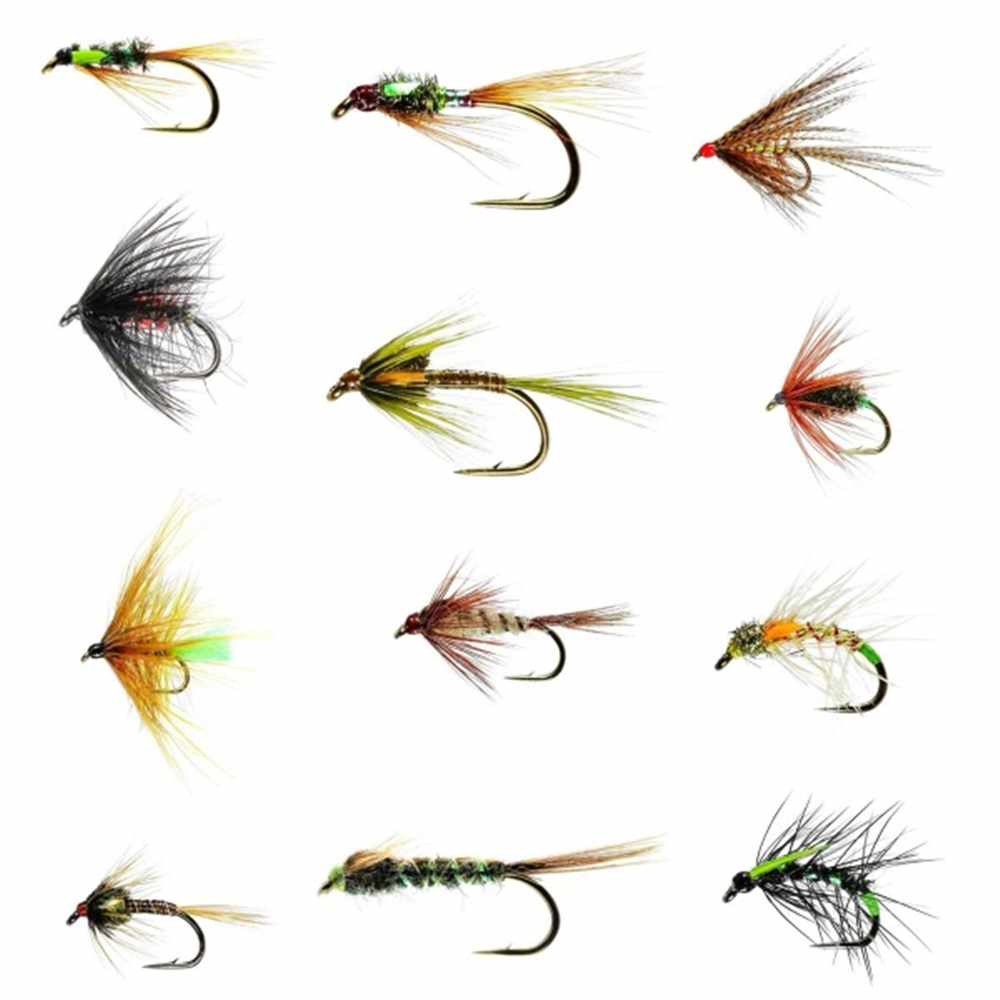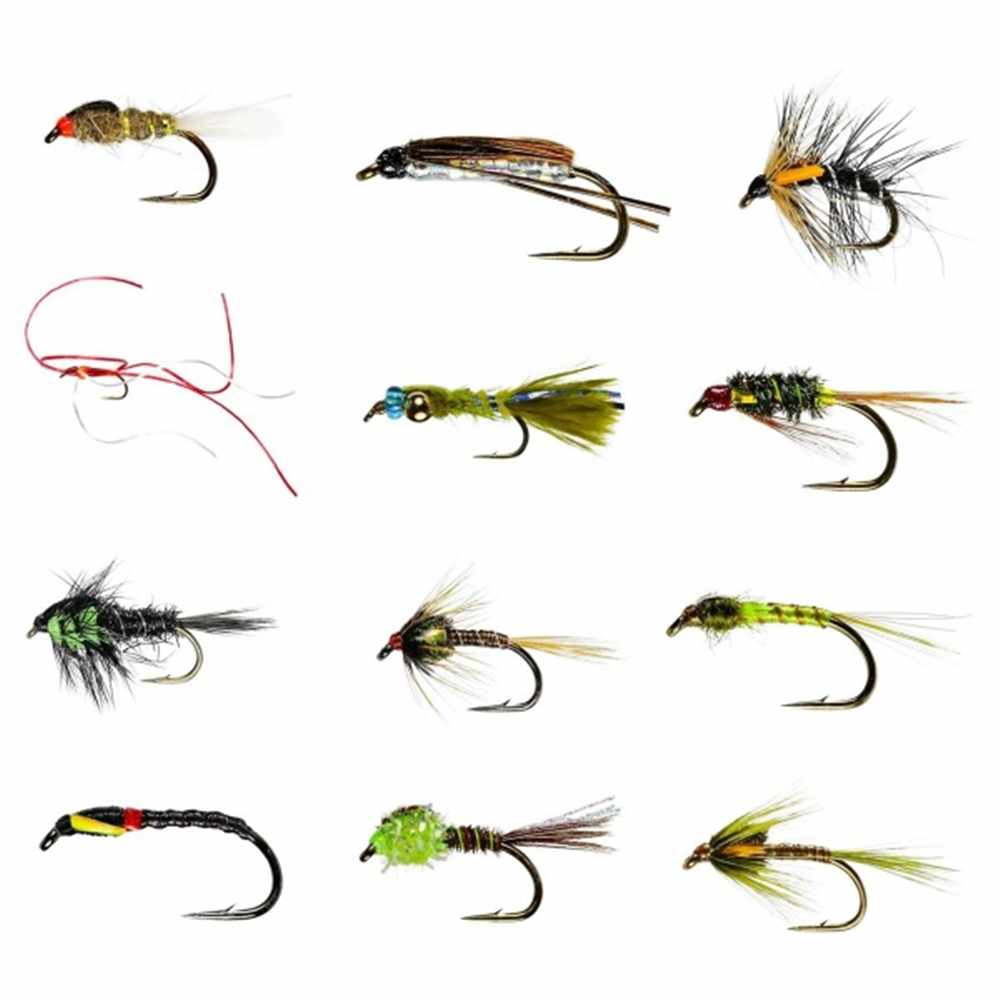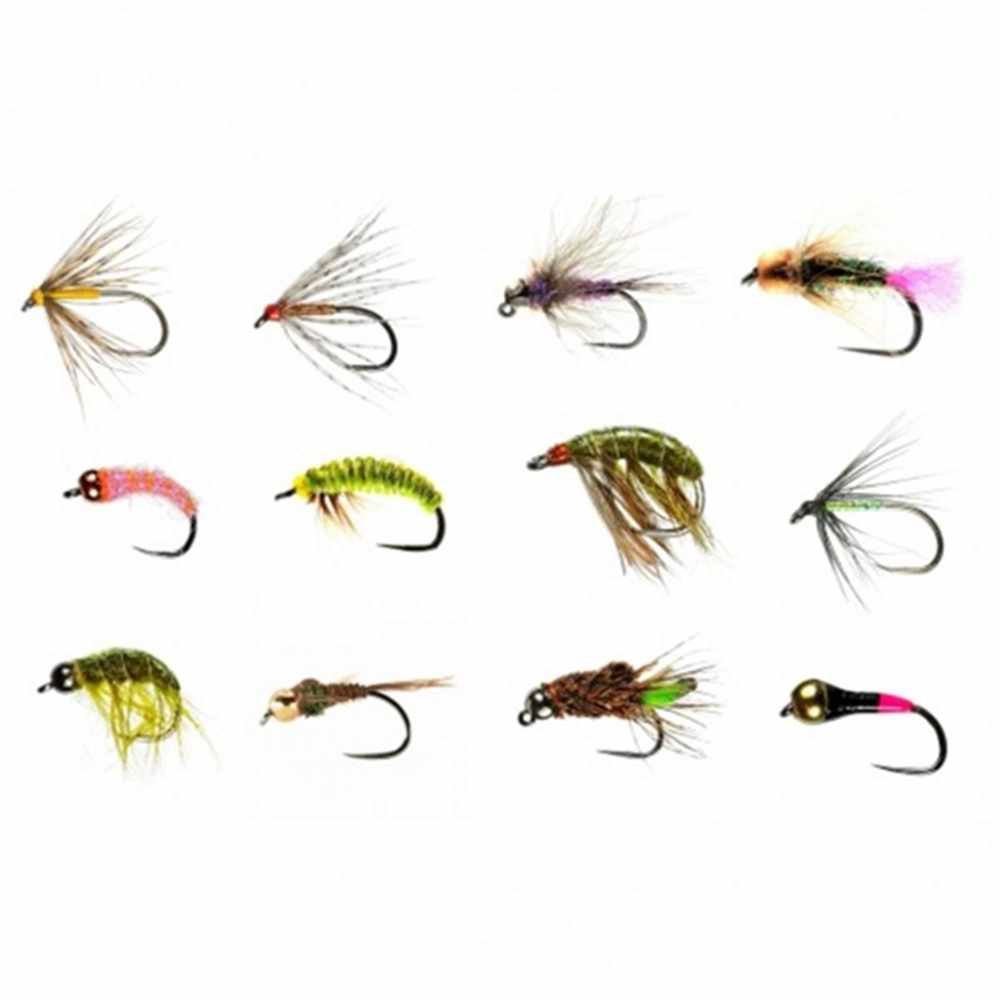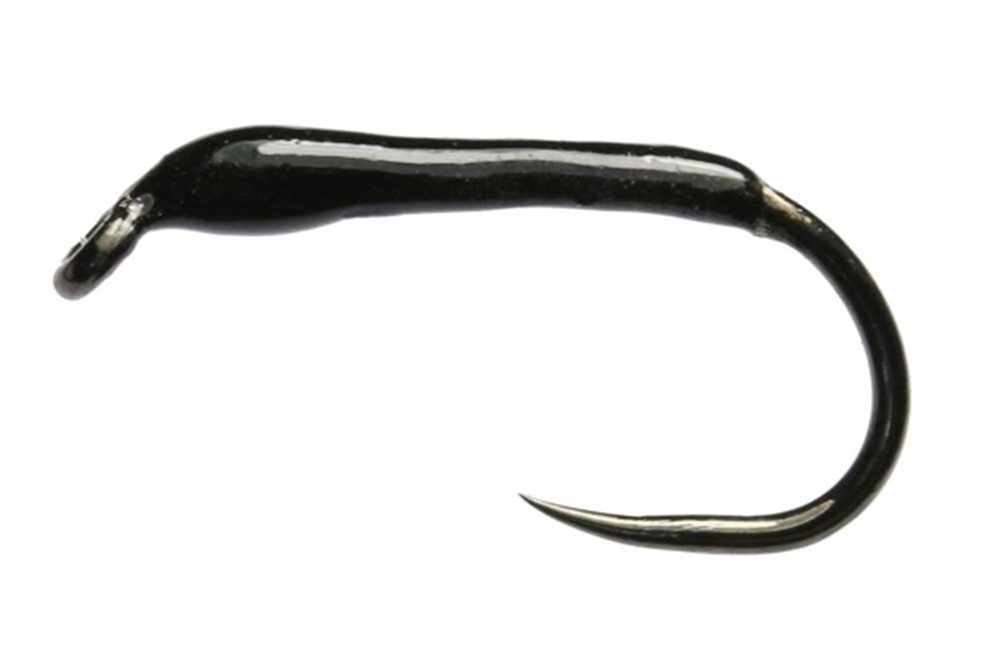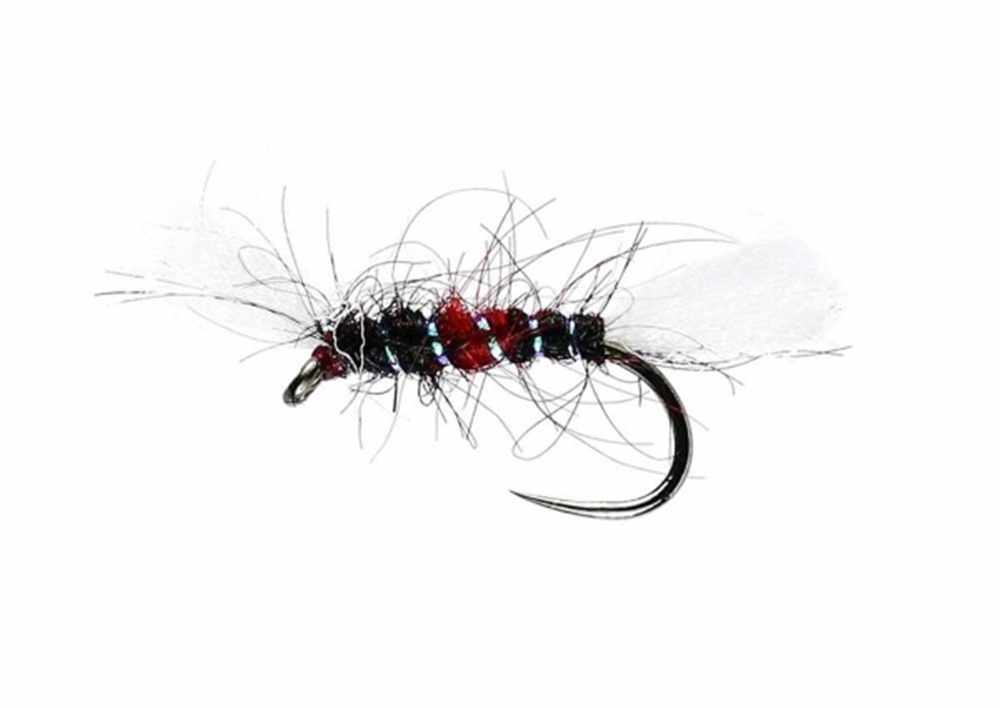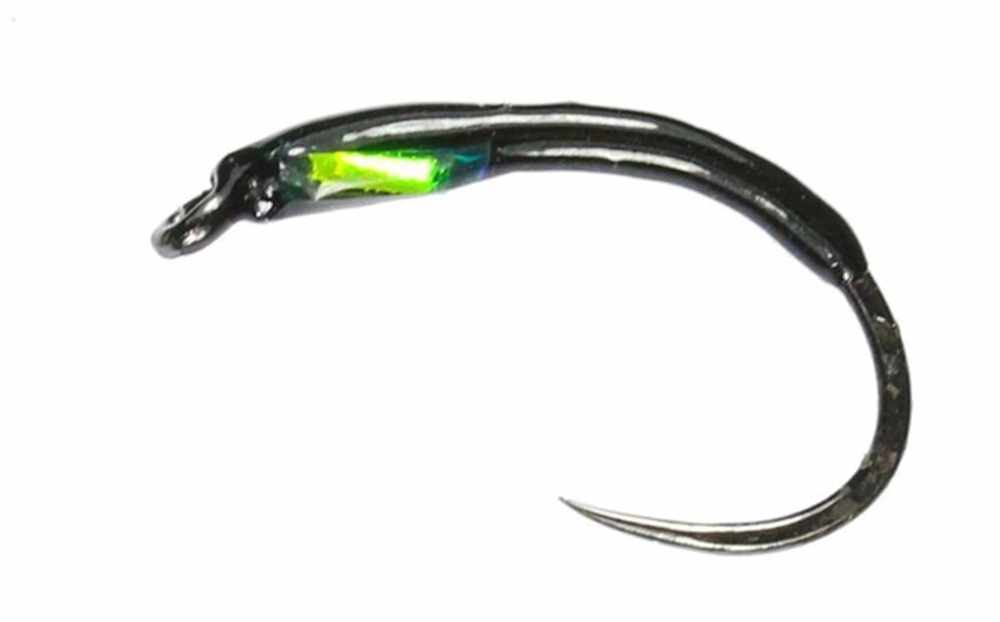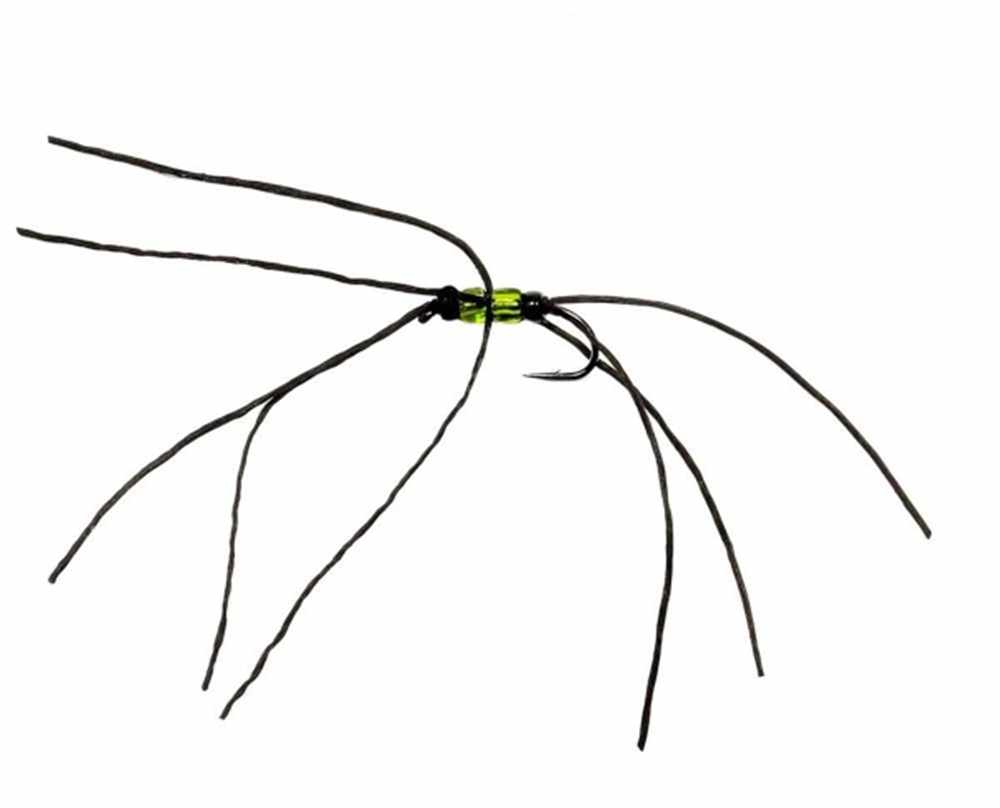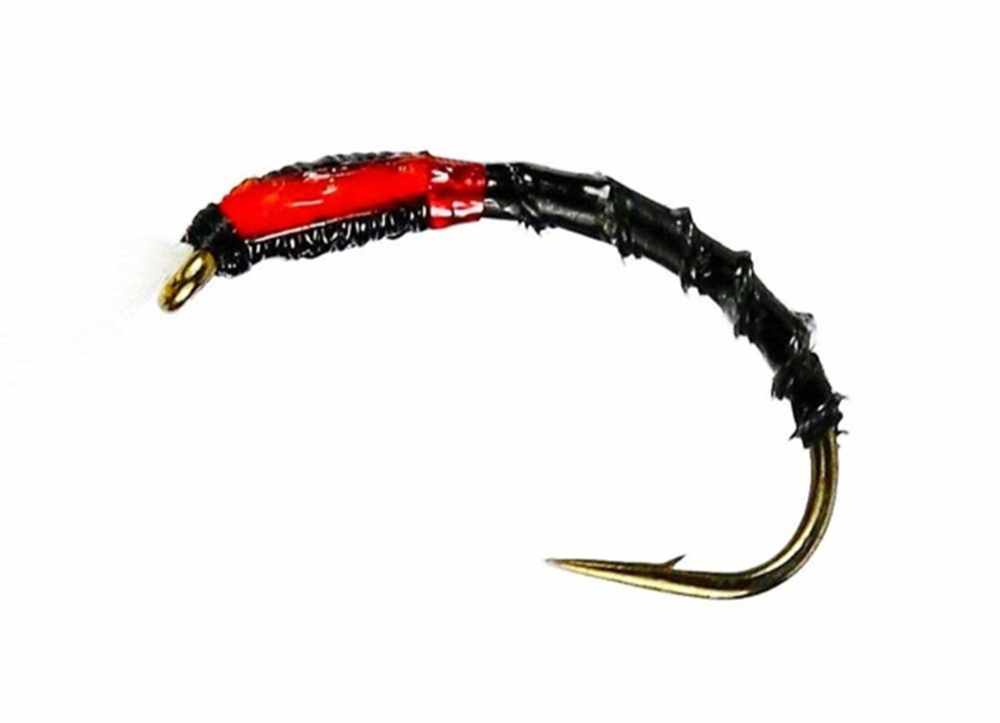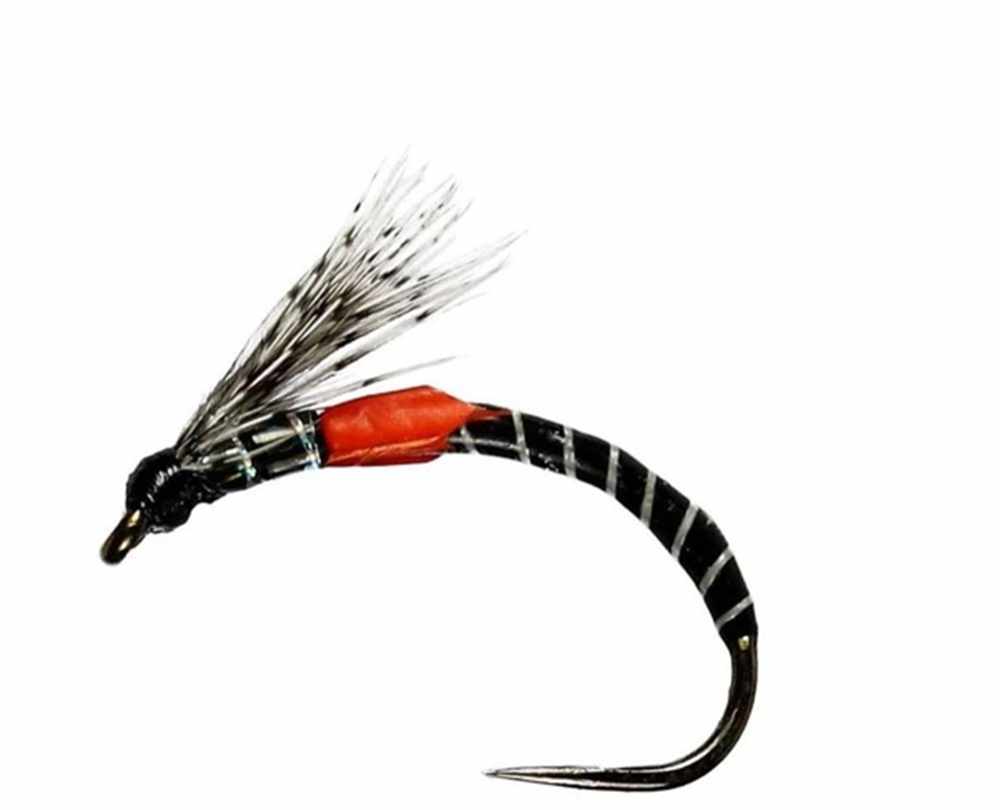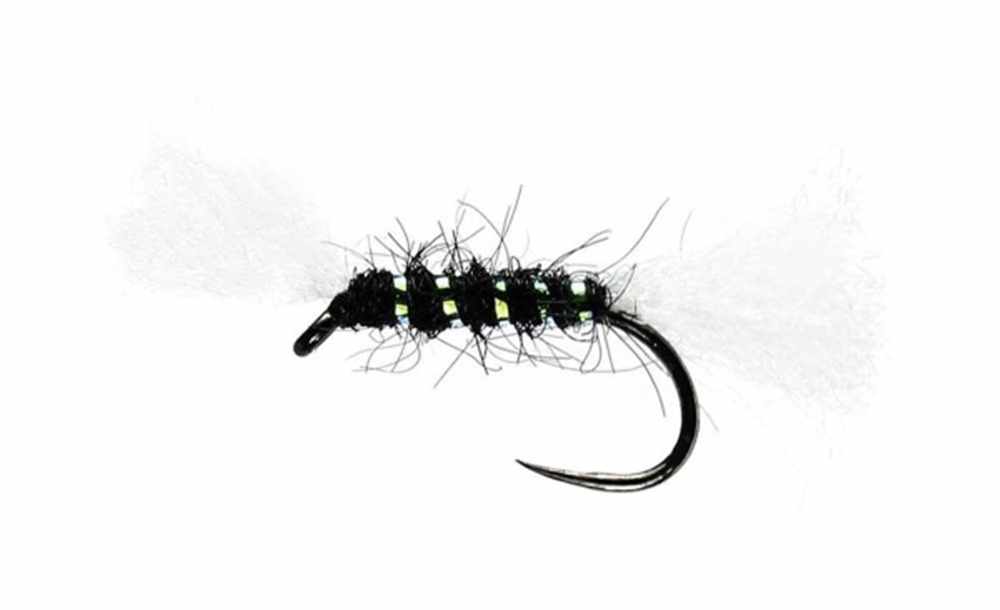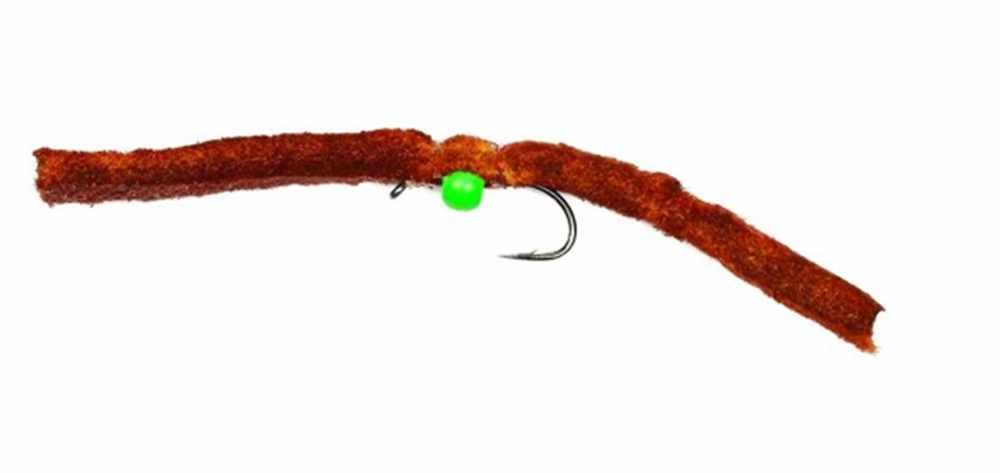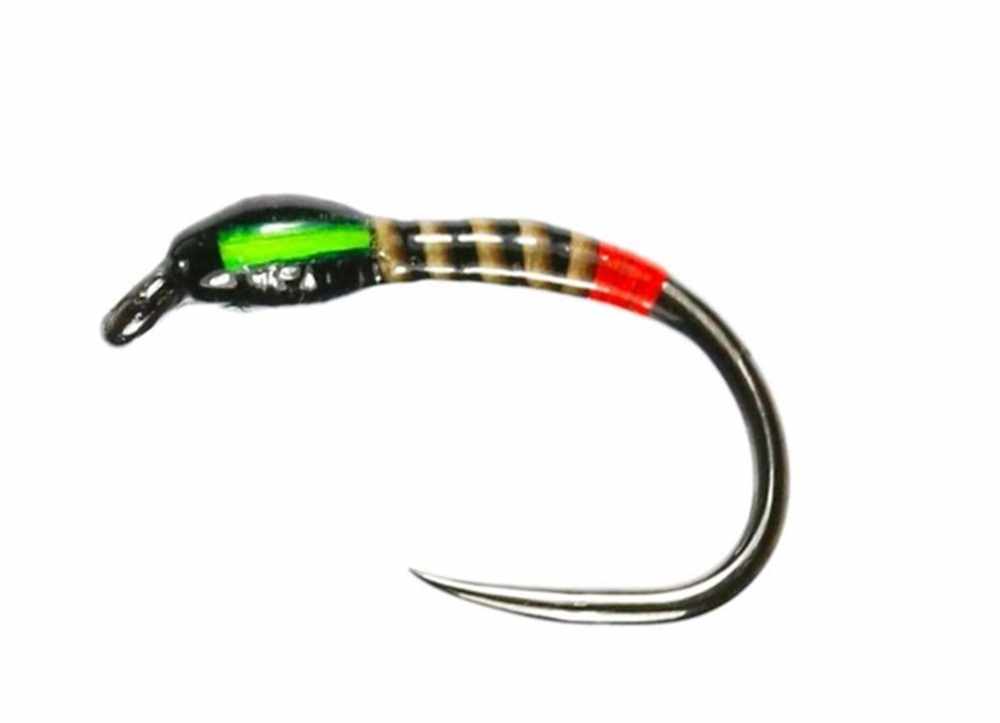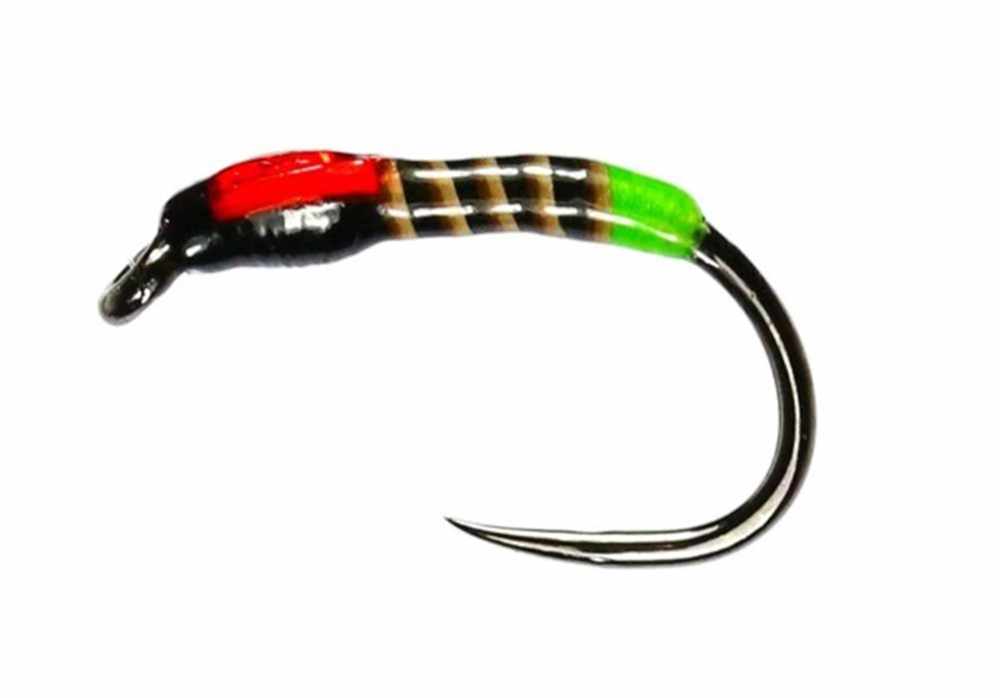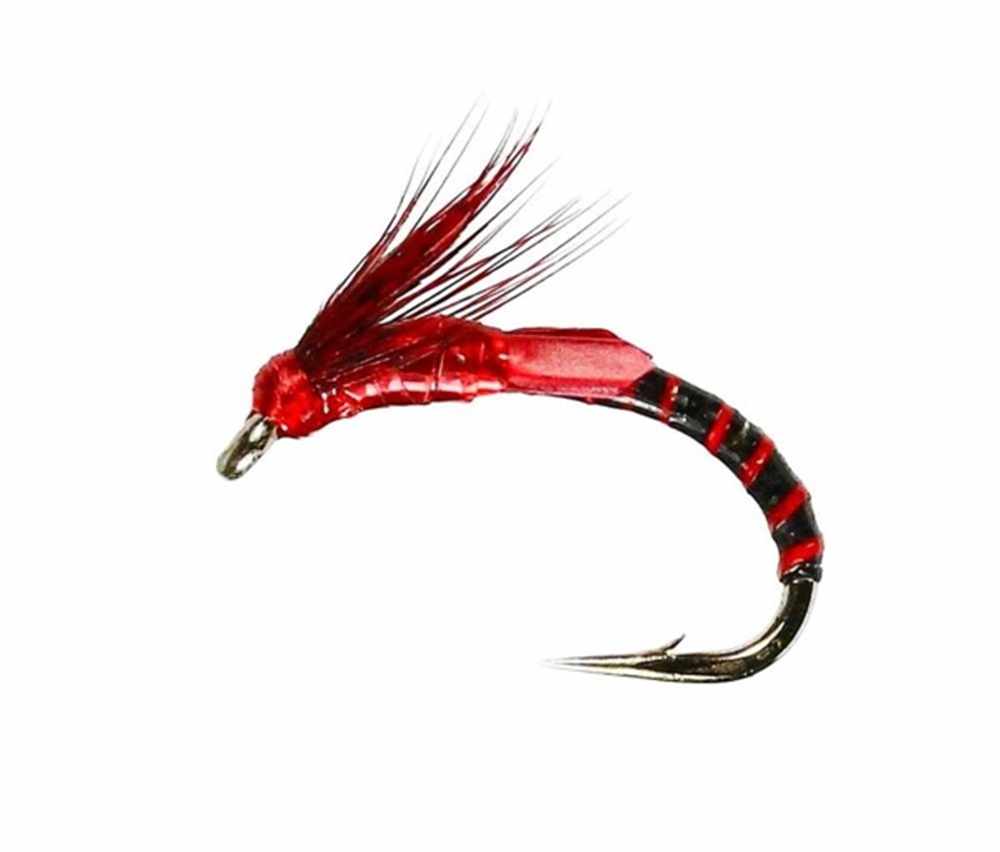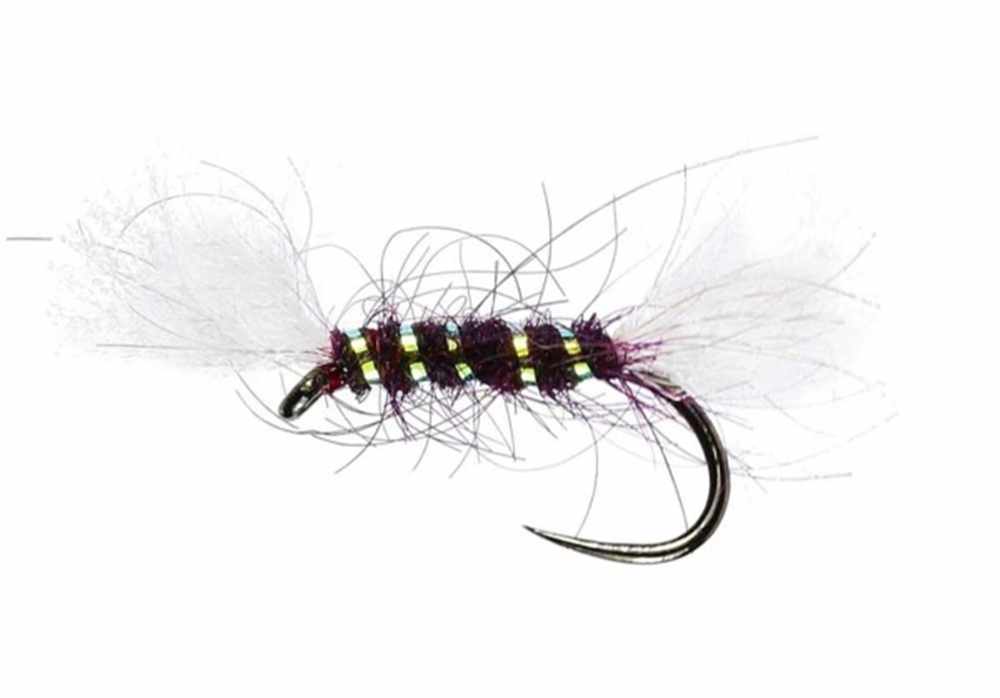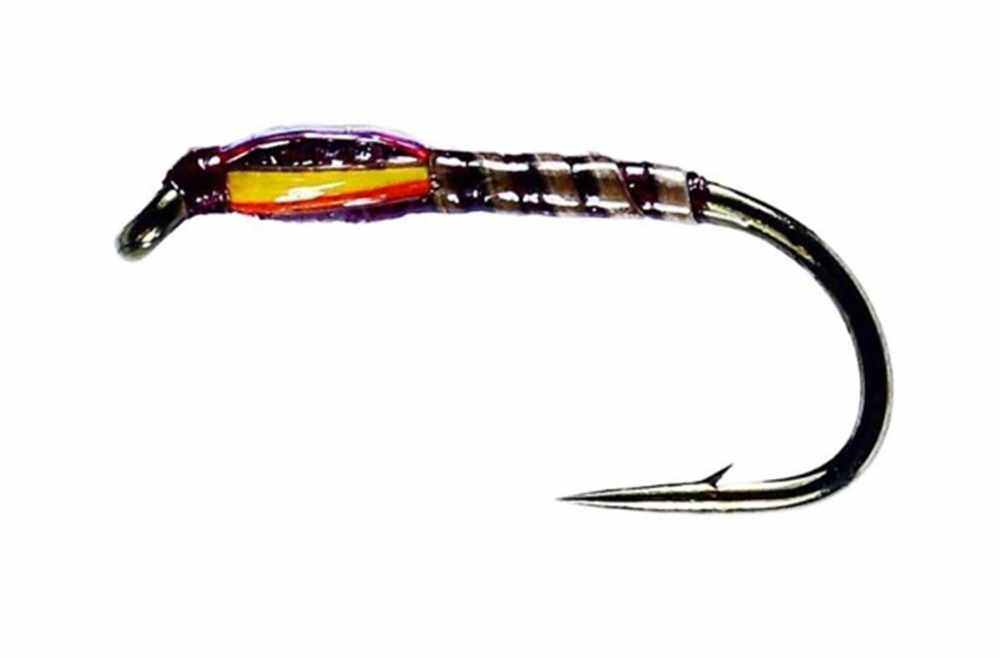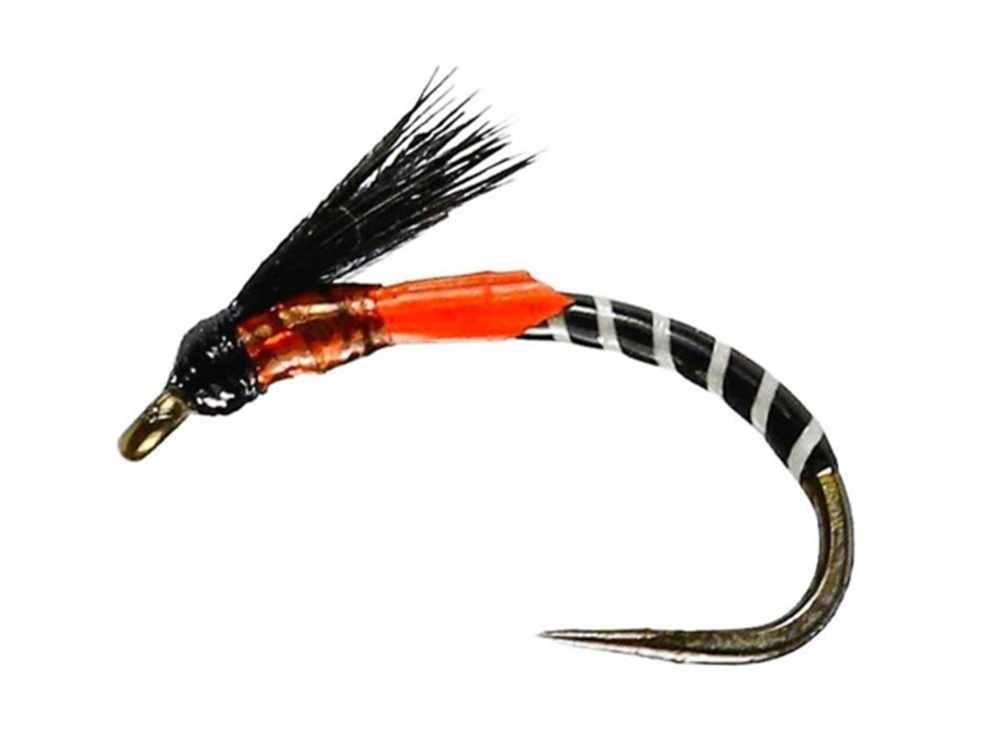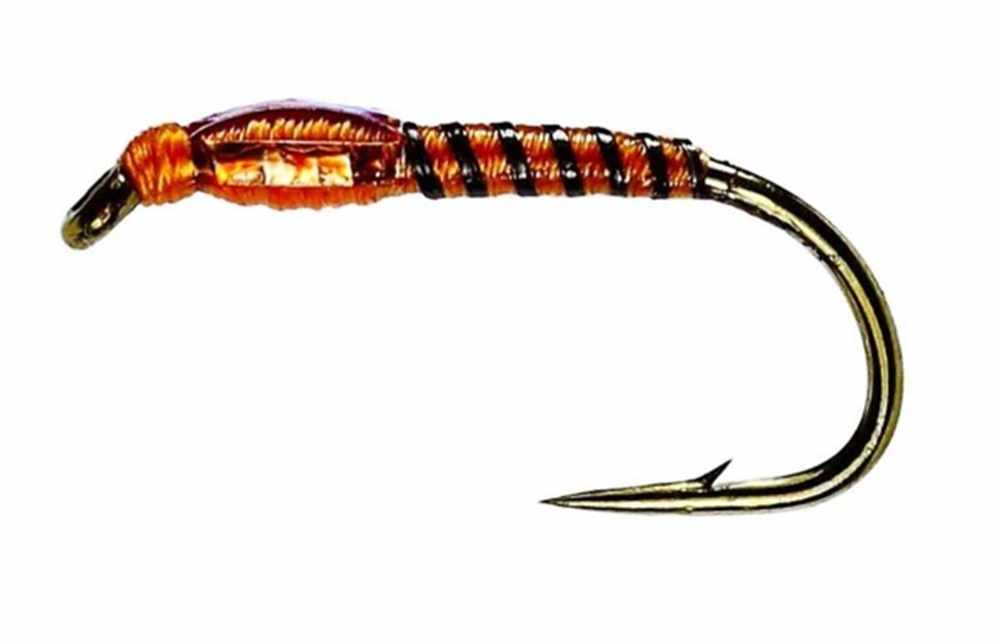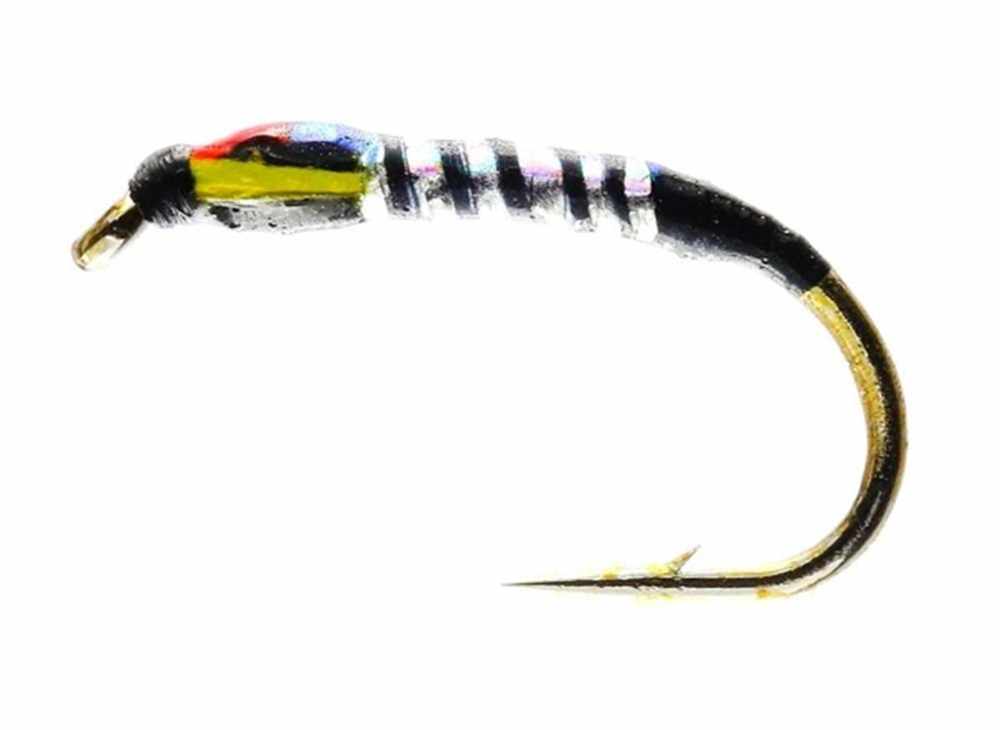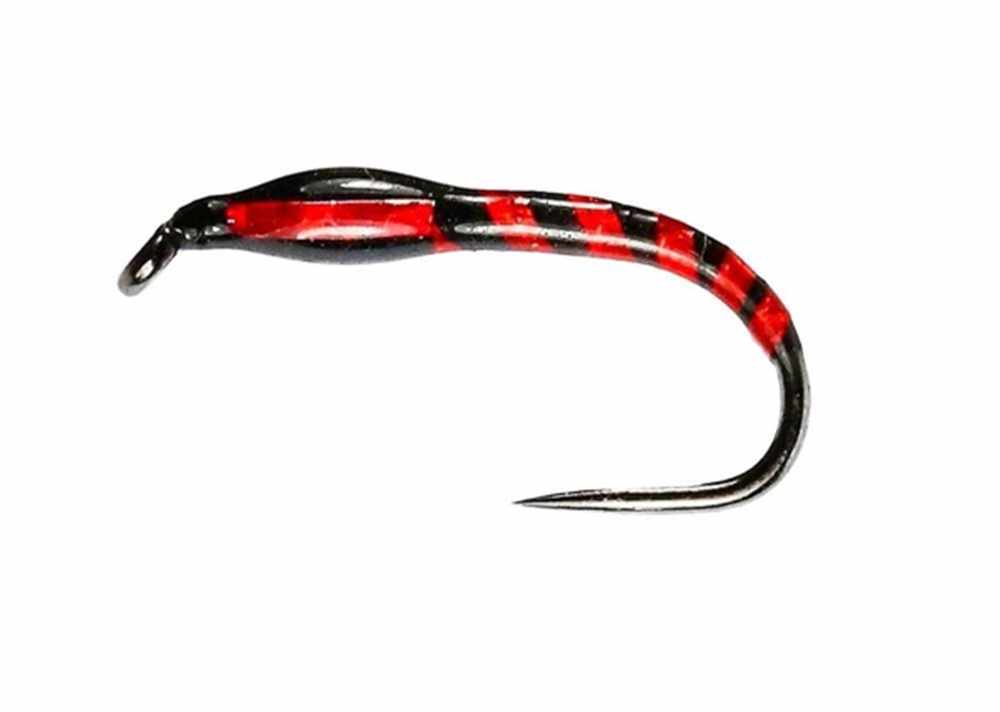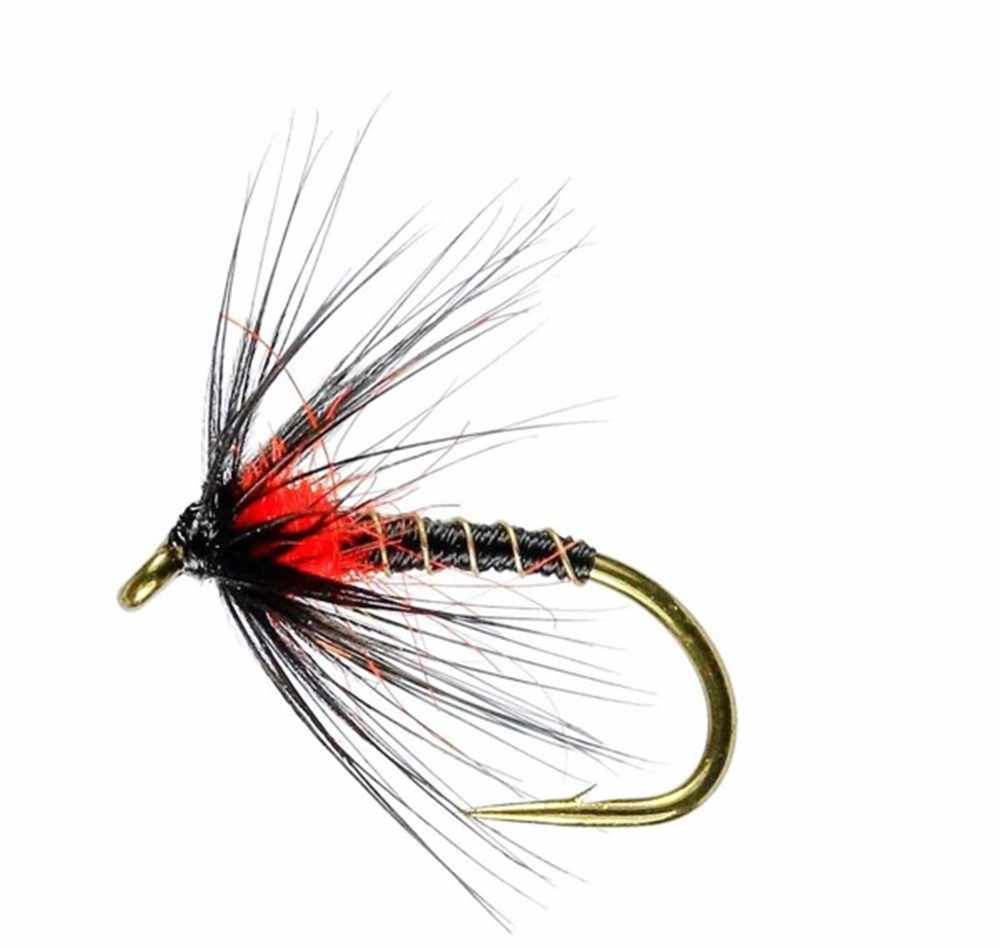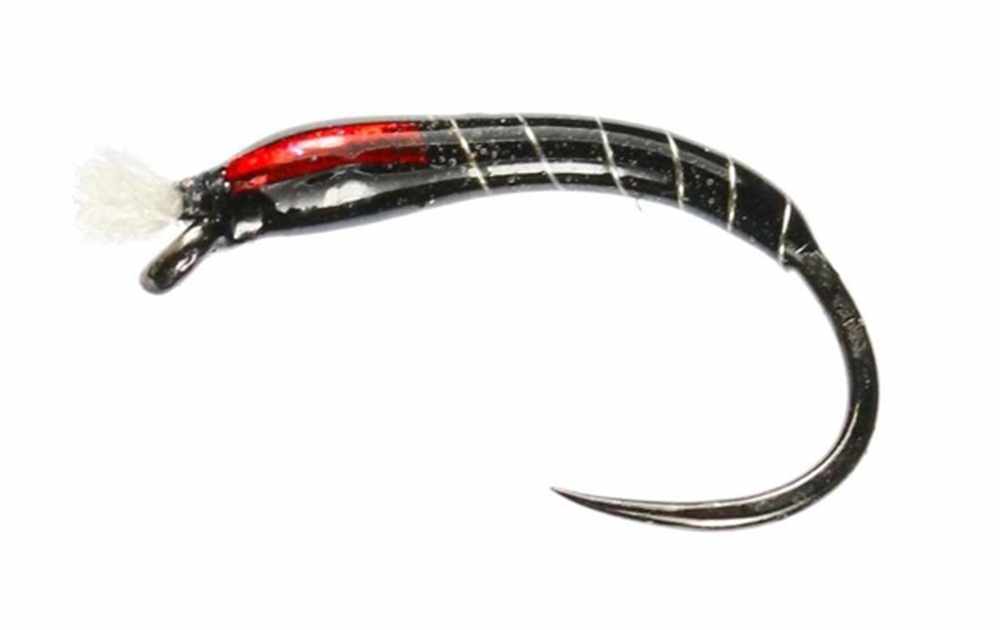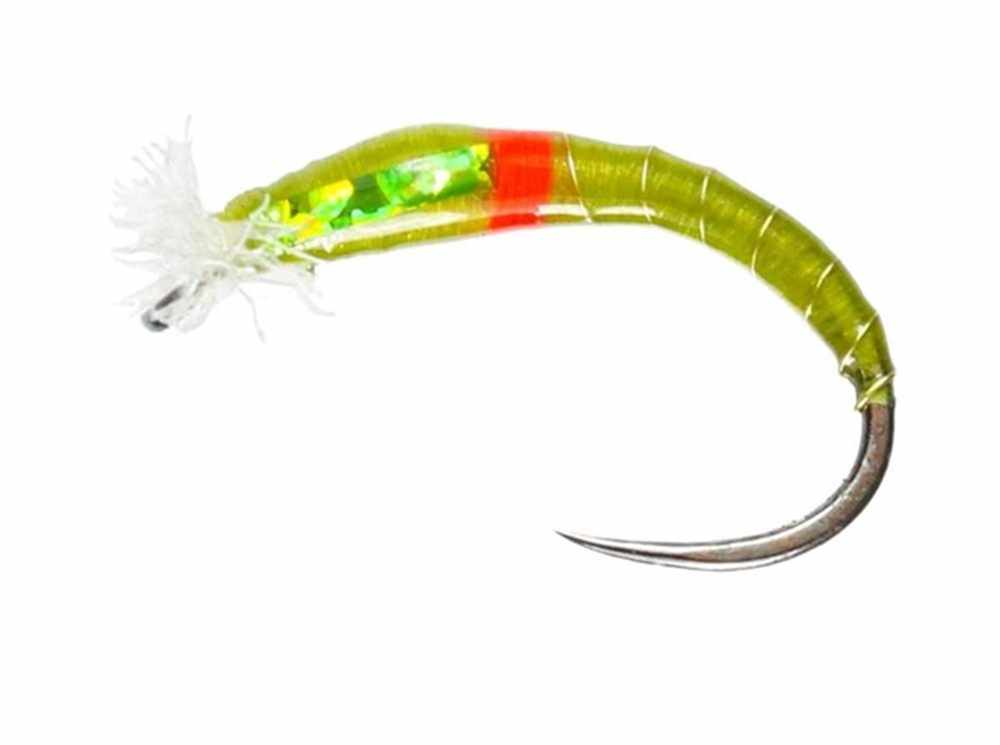Trout Buzzers - Deadly Fly Fishing Flies
One of the most effective flies for the stillwater trout fisherman is without doubt humble buzzers. This is a deadly fishing fly if used correctly. However many fly fishermen do not have success with them which can almost always be attributed to the fishing technique used. Buzzers are the next phase of bloodwarms as the emerge and move to the surface where they hatch into midges. Many stillwater fly fishermen strip flies rapidly across the water trying to provoke attacks by trout However you often have much more success using buzzer flies matching the hatch ensuring the movement is more natural.
Check our midge family hatch frequency and guide to fishing with buzzers for more information when and where to use the different colours and increase your chances of catching that nice trout.
Midges are the adult from which buzzer flies hatch every day! We recommend your should use these as your first fly on stillwaters. Check our massive range of deadly patterns for Rainbow and Brown Trout.
Buzzer Fly Patterns For Sale
These are certainly one of the important flies in any stillwater fly fishermans box when fishing for Rainbow Trout and Brown Trout. Check out our 14 minute video on fly fishing tactics and techniques below. It has great tips and techniques for you to use when using these patterns for fly fishing. We beleive in quality not cheap flies and have a thousands of happy customers, see their reviews
Size Matters - Do small buzzer flies work?
Yes! a natural emerger is size 14 to as small as size 22. To mimic this we often start with small flies size 16. On the point we will often use a tungsten head or size 8 fly to allow the team of flies to get down in the water. Watch where the trout are feeding, in summer you will often find Trout feeding in the top 18 inches of water, we have seen them feeding in the top 3 inches and watched as fishermen caught nothing because their flies were below the feeding zones. Look at our blog post for more details
Colour of Flies
There are lots of different midges affecting stillwaters, for example Black Midge, Large and Small Green Midges, Orange-Silver Midge, Small Brown Midge and Large Red midge, each has different hatches and changes in fly coloration to match the adult can help! Here are hatch charts for each of the variations can be seen on our Midge Hatch Details blog post. We usually start with black patterns and will try different coloured patterns according to the time of year and specific midge hatches occurring.

What is a Buzzer Fly?
A buzzer fly is a special fly that is designed to imitate buzzers or chironomids as they emerge through the water to hatch into midges. Midges hatch 365 days a year to flies like Brown Buzzer are important to match the hatch! A buzzer is a generic term for flies that imitate the pupae as they change from bloodworms filled with haemoglobin when they leave the bottom of the water changing colour as they move through to the surface film, ranging from black to brown and a variety of different colours. They then are classed as emergers when thy pop through the surface film to hatch into midges in a merge 30 seconds!
Buzzer Fly Fishing Methods, Tips & Techniques
The natural buzzers / chironomids move very slowly when emerging, moving slowly up and down in the water column until conditions are right to hatch and it is important that we use the buzzer to imitate that movement. A team of flies often consists of 3 buzzers including one or more buzzer flies for trout on a droppered leader, with the heaviest (or largest) buzzer on the point. Personally we rarely strip a team of buzzers but prefer to allow the team of flies to drift naturally.Often we will suspend them with a buoyant fly like a stimulator or wulff or alternatively use a Thingamabobber. A great technique is to allow the team of buzzer flies to drop below the feeding zone. We then lift the rod tip slowly taking about 30 to 60 seconds to reach 60 degrees then lower the rod tip rapidly, take up the slack line and allow to drop again. The lift and drop slowly imitates the movement of the natural buzzer / chironomid we are trying to imitate that slow rise and fall as it moves through to the surface film.
Great advice for buzzer fishing is:
- Do NOT strip trout buzzers
- use a static or slow drift team including buzzer flies
- Vary depth of the team, trout will feed at different levels at different times of the day
- look for porpoising trout, if they are slowly taking buzzers just below the surface swap to CDC emerger buzzers or Sandys Assassins
- try strike indicators or suspend a team of buzzers with a Stimulator fly, Foam Arsed Blob or buoyant foam fly
- Be prepared to use small buzzers, although size 8 is a great point fly when boat fishing a size 16 or size 18 better matches natural trout buzzer sizes
We believe buzzers are certainly one of the important flies in any stillwater fly fishermans box when fishing for Rainbow Trout and Brown Trout.
If you are on a stillwater then check our hatch charts to see what is likely to be hatching. On reservoirs and lakes natural flies that will almost always be about and catch brown and rainbow trout are midges which grow and emerge. All stages of the life-cycle can be imitated by Bloodworms which change into buzzers which we have a successful ranges of Buzzer fly patterns. Once in the surface film we can imitated these by Assassin Emergers, CDC Emergers, Shipmans buzzers and Suspenders which to the trout look like the midge pupae ready to hatch.
Hatch Frequency

Buzzer fly patterns are superb flies, check our midge family hatch frequency and guide to fishing with buzzers for more information.




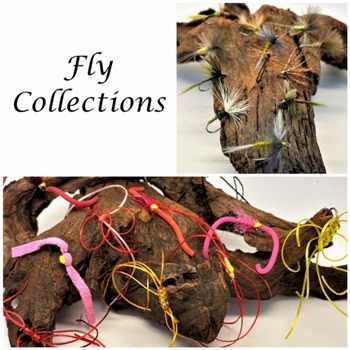
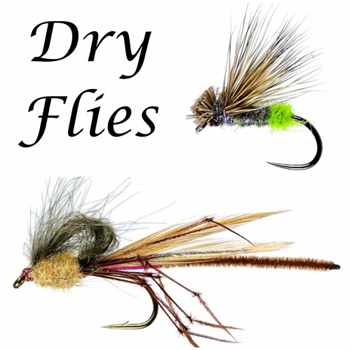
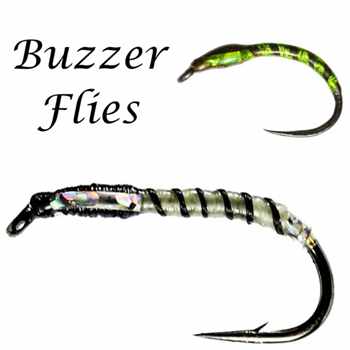
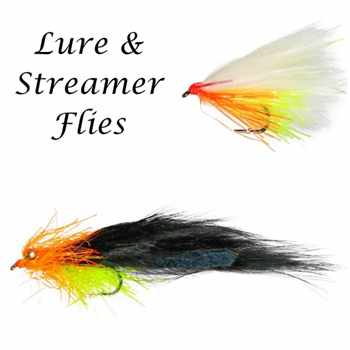
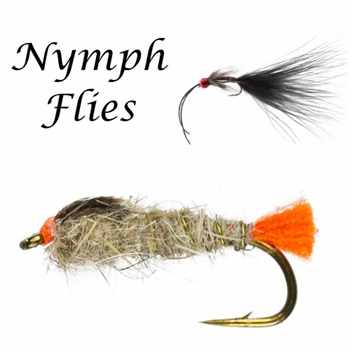
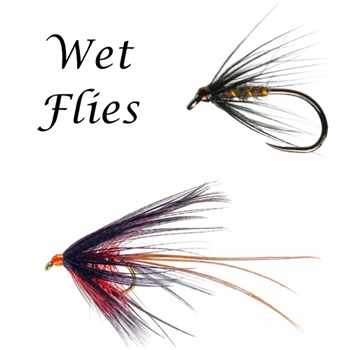
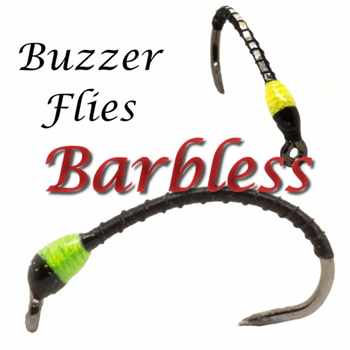
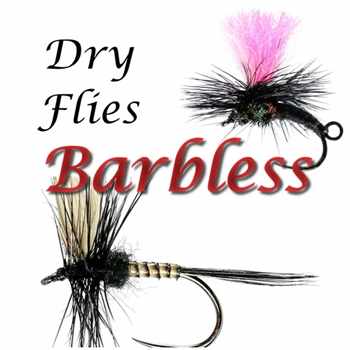
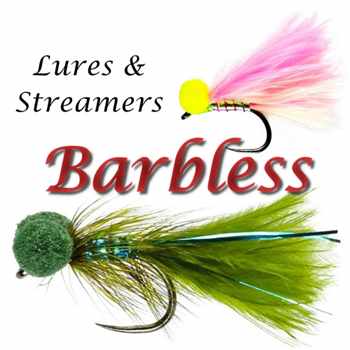
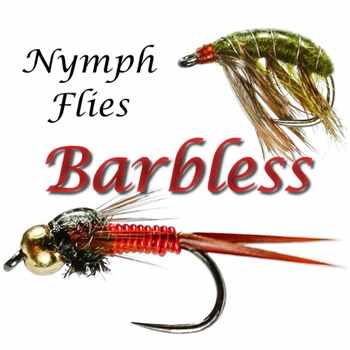
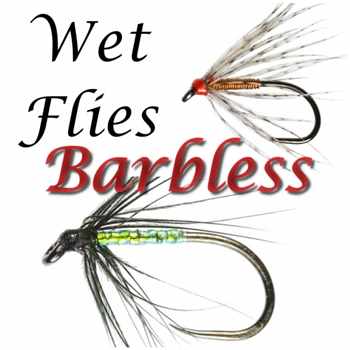
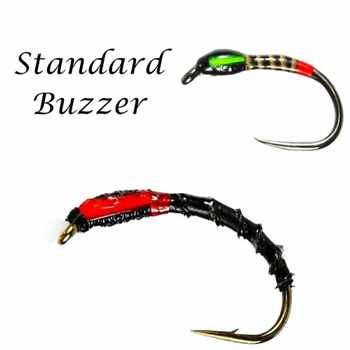
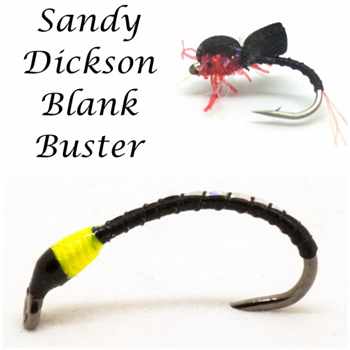
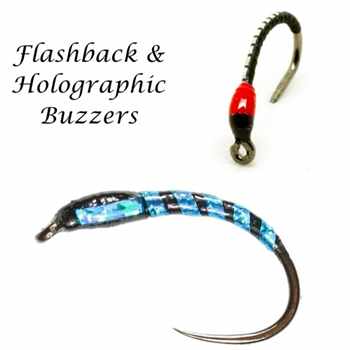
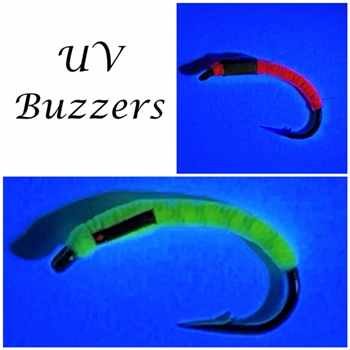
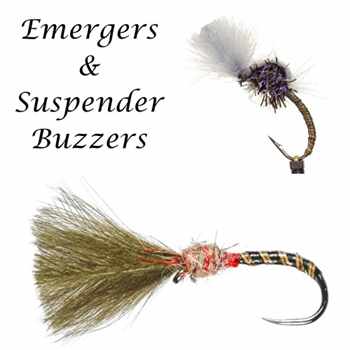
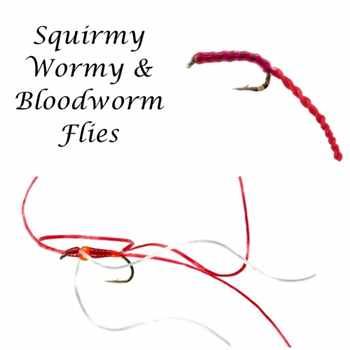
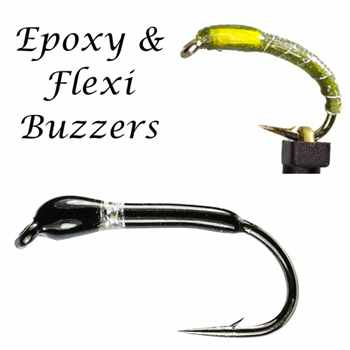
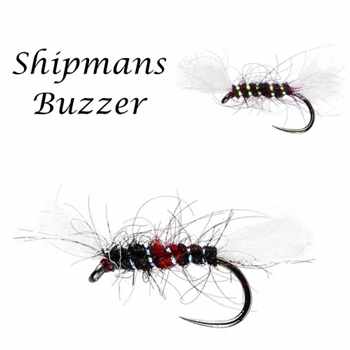
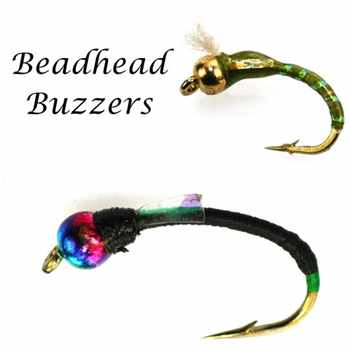
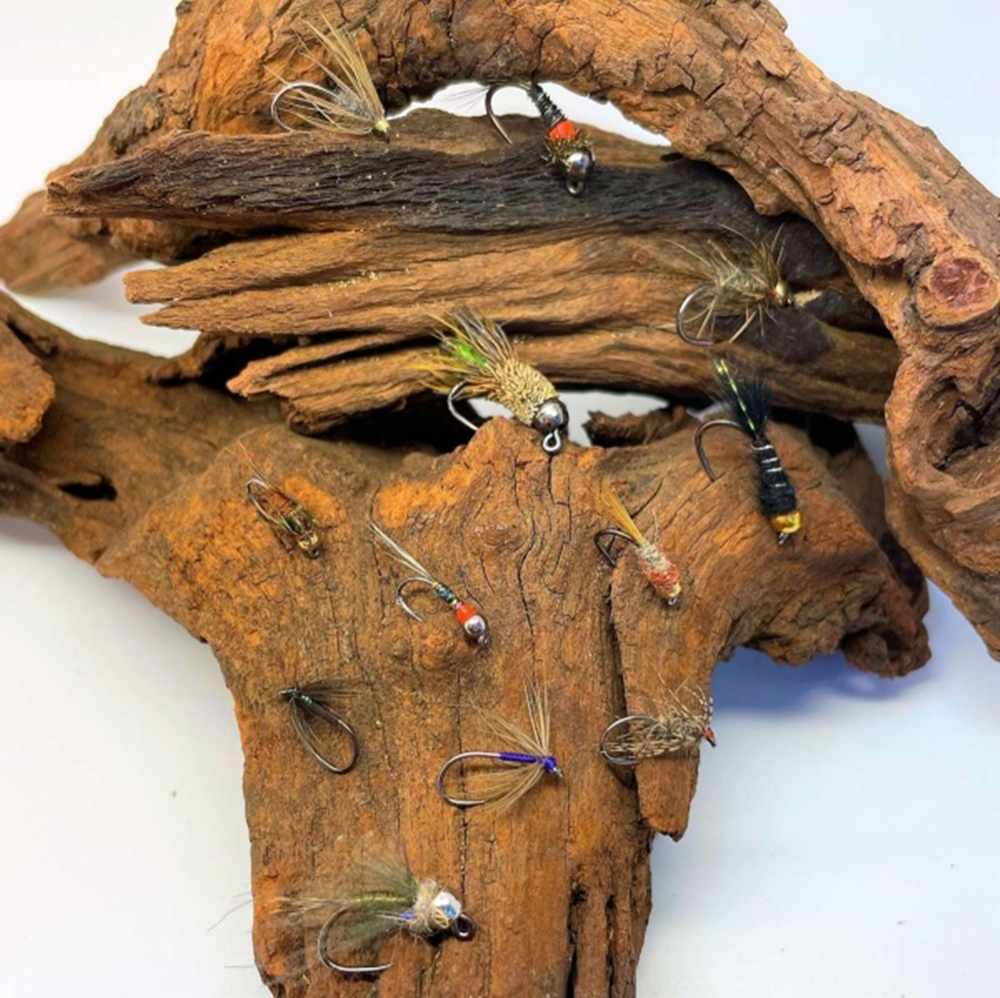
.jpg)
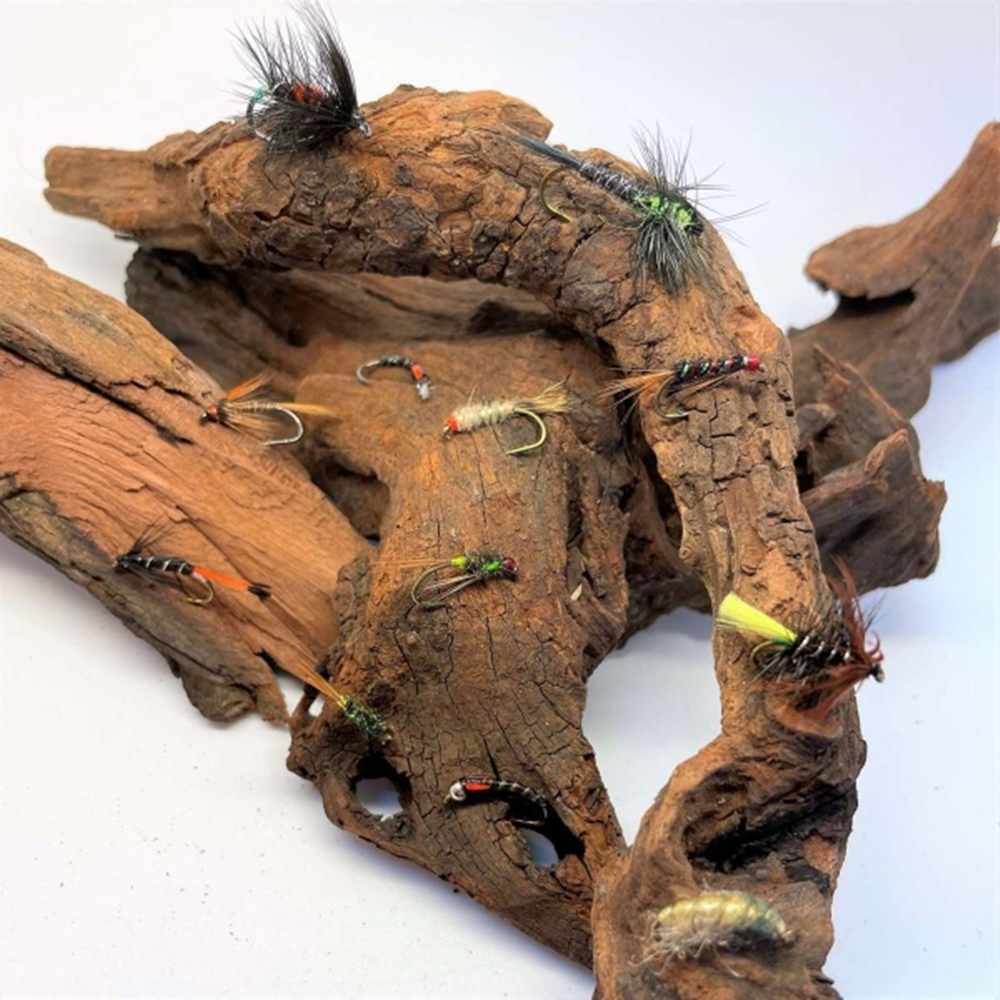
.jpg)
.jpg)
.jpg)
